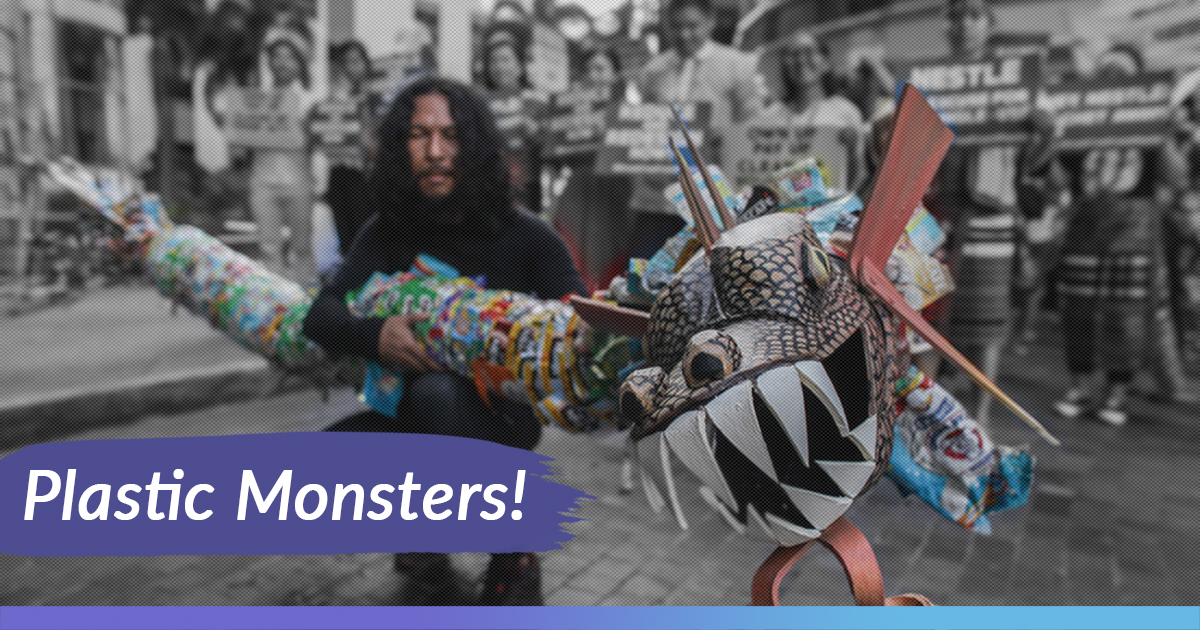Recently, Greenpeace activists went to explore the waters around the Verde Islands in the Philippines. Their devastating discovery was that, what is known to be one of the most pristine marine environments in the world, has now been engulfed in plastic. Plastic has impacted even the smallest of its inhabitants.
While there is plastic pollution everywhere in Southeast Asia, the places where it all really starts are in the top multinational companies’ boardrooms. According to Greenpeace, these companies basically created a #PlasticMonster by dumping products packaged in non-recyclable, single-use plastic in places where there is an absence of infrastructure to manage them.
Keeping this in mind, Greenpeace decided to ship this plastic monster back to its home, to where it was created. Greenpeace is strongly urging corporations to take strict action to stop the production of throwaway plastic, as part of the global #BreakFreeFromPlastic movement.

Greenpeace.org
A series of waste audits done there by the Global Alliance for Incinerator Alternatives (GAIA) revealed that Nestlé and Unilever were the top polluters in the Philippines.
Plastic monster on its way
In March this year, Greenpeace activists, onboard their ship Beluga, travelled down Rhine River of Europe, sailing through the Netherlands, Germany, and France, with the huge 20 metres long plastic monster accompanying them. Their aim was to give Nestlé a message they have been ignoring for long — stop polluting the planet with these unnecessary, single-use plastics. The plastic monster was a giant covered in plastic waste from Nestlé.

Greenpeace.org
A plastic monster serpent along with an “invoice from the Filipino people” was delivered to Nestlé headquarters in the Philippines on April 10, 2019, by activists from the Break Free From Plastic movement. The invoice outlines the impact that these plastics have on the environment, human health, wildlife, livelihood and businesses. It further talked out the emission of greenhouse gases and waste management challenges.
On April 11, 2019, at the Nestlé AGM, Greenpeace activists demanded Nestle to stop relying on single-use plastic and find an alternative immediately, based on refill and reuse.

Greenpeace.org
Then, on April 16, Nestlé offices all around the world were greeted by plastic monsters with Greenpeace Activists. On the same day, a protest was staged by Greenpeace Italy activists at one of the main brand properties of Nestlé — the San Pellegrino plant. At Nestlé’s global headquarters in Switzerland, the plastic monster then arrived home. Across the globe, various Nestlé offices, headquarters and factories saw the monster at their doorstep.
The Logical Indian take
Annually, Nestlé uses 1.7 million tonnes of plastic. The past five years have seen the use of plastic by the company in its packaging portfolio increasing by 5%. Most of Nestlé’s products are sold in harmful, single-use plastics.
Not just Nestlé, but several other companies, including Coca-Cola, PepsiCo, Danone, Mondelez International, Procter & Gamble, Unilever, Perfetti van Melle, Mars Incorporated, Colgate-Palmolive produce plastic waste in shockingly large quantities. Plastic pollution causes unimaginable damage to the planet. From killing animals to destroying marine life, from harming wildlife to affecting human habitats, plastic has the potential to turn the world into a place which will significantly disrupt the lives of future generations. The Logical Indian urges these companies and all individuals to take responsible steps to protect the planet.
Also Read: 40 Kg Of Plastic Found In Stomach Of Dead Whale In The Philippines











